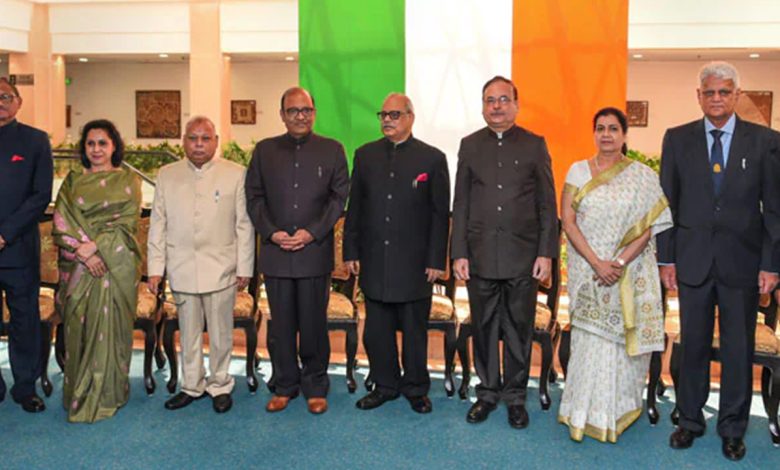
Context- Around 68% of corruption complaints against public functionaries with the Lokpal of India were disposed of without any action in the last four years.
Key highlights-
- According to data by Lokpal office to a parliamentary office of the Department of Personnel and Training (DoPT), of the 8703 cases received only 5981 were disposed of.
- Around 6775 cases were rejected for not being in the prescribed format and were not entertained.
- Out of the 2760 complaints received in 2022-2023 only 242 were in the prescribed format.
- Till date it has not prosecuted a single person accused of graft.
About LOKPAL
- The Lokpal of India is an anti corruption body instituted to investigate complaints against public functionaries including the prime minister.
- The lokpal and lokayukta act of 2013 provided for the establishment of the Lokpal and Lokayukta for the union and states respectively. Maharashtra was the first state to have a lokayukta in 1971
- Both are statutory bodies
- Justice Pinaki Chandra Ghosh was the first lokpal chairman ,currently it is Justice Pradip Kumar Mohanty.
- Their main function is to act as an ombudsman- a Swedish inspired model to inquire on corruption , bribery and extortion cases against public functionaries.
- Both The terms lokpal and Lokayukta were coined by Dr. L. M Singhvi.
Timeline on the evolution of the Lokpal
- 1966– the 1st the ARC- Administrative commission made recommendation for the establishment of these bodies
- 1968- the lokpal bill was passed but lapsed due to dissolution of the lok sabha
- 2011– eight attempts made to pass the bill
- 2002– commission to Review of the working of the constitution headed by M.N Venkatachaliah recommended their appointment with the P.M being kept out.
- 2005– the 2nd ARC chaired by Veerappa Moliy recommended the immediate establishment of the body.
- 2011- A group of ministers chaired by Pranab Mukherjee examined the proposal of lokpal bill.
- 2013– Anti-corruption movement in India led by Anna Hazare resulted in passing of the Lokpal and Lokayukta bill.
- The bill received the president’s assent and came into force on 16th January 2014.
Structure of lokpal-
- It is a Multi- member body with one chairman and maximum 8 members.
- Chairperson- either Chief Justice of India or former judge of supreme court with minimum 25 years of experience on anti corruption related matters and policies.
- Term of chairman and members is 5 years or till the attainment of 70 years.
- Members are appointed by the president.
- Of 8 members- 50% from SC/ST/ OBC/ women and minorities.
- Judicial members either former member of supreme court or CJI of high court
- Non – judicial members from fields with expertise in anti corruption policy, law and management, vigilance, law, public administration, finance including insurance and banking.
- The jurisdiction of lokpal includes the members of the parliament, Group A,B and C officers of the central government , ministers and the Prime minister.
The lokpal has superintendence over the and can give direction to the CBU.
- Powers of lokpal-
- Recommend transfers or suspend a public official charged of corruption.
- Give directions to prevent destruction of records during preliminary inquiry.
- Confiscate assets, receipts, benefits, proceeds procured by corruption.
Limitations-
- High level of political influence.
- Many states are still yet to establish a lokayukta. We have only 16 states with lokayukta so far.
- The act did not provide immunity to the complainant thereby discouraging peole on making complaints.
- No constitutional backing
Way forward– The Lokpal was established in order to promote clean and responsible governance hence it should act as an enabler rather than inhibitor by rejecting cases on technical grounds. With India heading the G-20 working group on Anti corruption , the lokpal must rise and fulfill its objective, for corruption free, transparent governance empowering the citizens.





.png)



